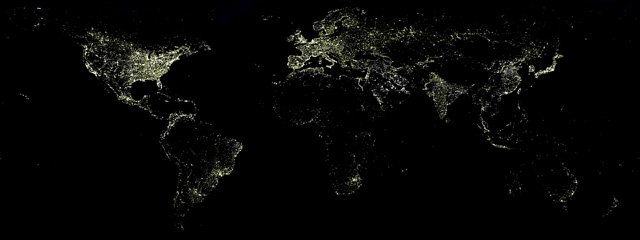
 Parable of the Sower by Octavia Butler is the first novel on the syllabus of the apocalypse class I am auditing. It focuses on a teenage girl living in a walled community outside of Los Angeles in what is apparently a post-apocalyptic America. Potable water is a precious commodity, the streets are choked with the poor and the dying, murder is an everyday event, any house that isn't defended by an armed community surrounded by strong walls is subject to being burned down by gangs of thugs hopped up on drugs, and when the police intervene it is merely to demand bribes and then do nothing. There is an official government, but it's a joke; there is a semblance of an economy, with a few heavily fortified stores and trucks rumbling up and down the ruined roads to supply them, but only a few relatively wealthy people really participate in the economy. The masses support themselves through subsistence farming at best, marauding at worst. So I read this scenario and wondered what sort of disaster might lead to these conditions, when suddenly I realized — who needs a disaster? This isn't some postnuclear nightmare. This is merely a geographical transposition. Because what Butler is describing is Africa. Parable of the Sower is about an America whose institutions have devolved to the point that it has become a Fourth World nation, another vast continent with no lights at night, Somalia on the Pacific. I mean, run through that checklist above and compare it against Liberia or The Country Formerly Known As Zaire: little potable water, check; streets choked with the poor and dying, check; commonplace murder, check; corruption, check... How did Sower's America get that way? The book doesn't say. How did Africa get that way? Actually, that reminds me — someone mentioned a few days ago watching a movie about Tanzania's plight (it's suffering from a famine even though it exports enough food to feed its own population). A New York Post writer grumbled, "The documentary tries to pin Africa's suffering on capitalism, but dances around the real problem." That problem: "corrupt governments." I have no small amount of loathing for corrupt governments my own self, but this seems to me like saying, "No, silly, your problem isn't cancer — it's all these tumors!" Corrupt governments don't fall from the sky. Our own corrupt government owes its existence to the "Get Rich or Die Tryin'" thread in our culture: politicians get elected by appealing to people's greed with promises of tax cuts, and then we pretend to be surprised when it turns out that they've been cooking up shady schemes to finance a little greed of their own. Meanwhile, cultures based on low-risk organized freedom have the least corrupt governments on Earth. (How Scandinavian of them!) The problem is that you can't just up and change a culture... though, hey, I guess that's what the main character is trying to do with her Earthseed business, eh? Anyway, we're reading the sequel at the end of the semester, so more then. Y'know, barring apocalypse.
Return to the Calendar page! |
